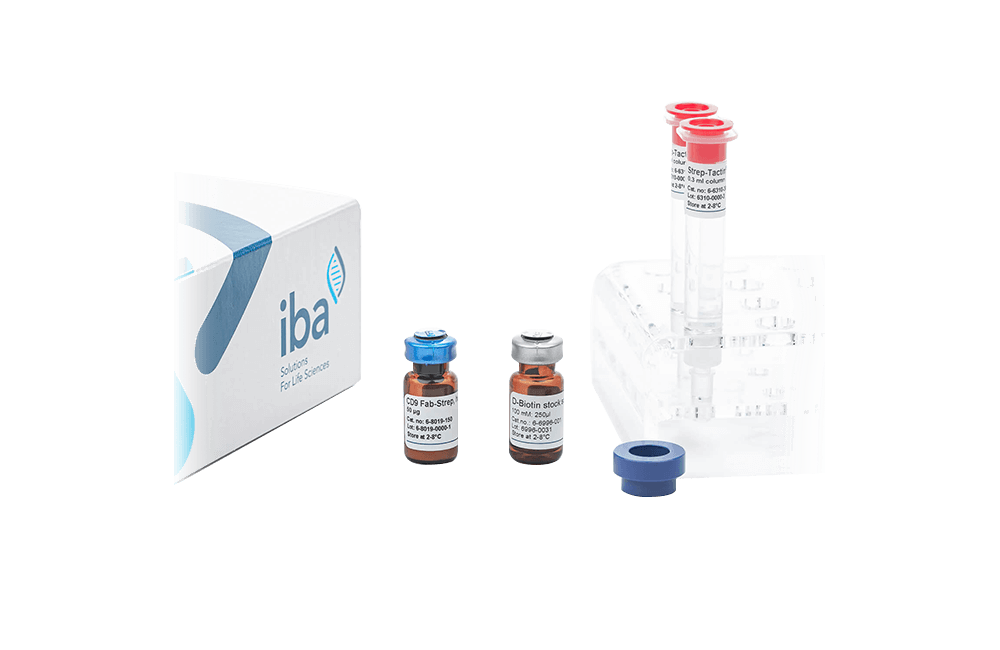Traceless Affinity Exosome Isolation

The Fab-based traceless affinity cell selection (Fab-TACS®) technology represents an affinity chromatography system for non-magnetic isolation of exosomes. It is based on Twin-Strep-tagged CD-specific Fab fragments (Fabs), which reversibly capture and release the exosomes. The technology delivers label-free exosomes with intact biological functions in a standardized manner with highly reproducible quality. The exosomes can be isolated from different cell culture supernatants, serum and plasma.
High quality exosome isolation without ultracentrifugation
Minimal contamination by other EVs
The particle size is a critical factor in evaluating the quality of isolated exosomes. 99% of particles isolated from cell culture supernatants of mesenchymal stem cells (MSCs) fell within the range of 30 – 150 nm (A). This indicates strong exosome enrichment. In comparison, only 32% exosome-sized particles were detected after purification with a commercially available PEGylation kit (B), implying contamination by larger extracellular vesicles.
High content of exosome proteins
Since other same-sized non-exosome contaminants may contribute to the pool of isolated particles, we tested for the presence of marker proteins CD63 and Alix after exosome isolation from MSC supernatant using our Fab-TACS® technology. Both proteins were clearly present within the purified particles (C), confirming their exosome phenotype.
Reproducible results
Depending on MSC donor, cell culture supernatant compositions may vary. Purified exosomes of three independent isolations from different MSC donors were very comparable in their size ranging from 86 nm to 90 nm average diameter. All isolations yielded around 94% of particles between 30 and 150 nm in size (D). Besides high purity, this demonstrates a high reproducibility of our Fab-TACS® exosome isolation technology. It also shows a comparable exosome isolation yield throughout different experiments.
Source-independent application
Important exosome sources also include a variety of human bodily fluids such as blood and urine. Similar to isolations from cell culture supernatants, 96% of particles retrieved by exosome isolation from serum of humans exhibited the typical exosome size of 30 to 150 nm (E). This shows that with our Fab-TACS® isolation technology only one exosome isolation kit is needed for different vesicle sources.
Quick and simple
Due to the surface protein specificity of the Fab-TACS® isolation technology, time-consuming centrifugation steps or extensive sample preparations are not necessary. The exosome isolation protocol is easy and straightforward, permitting efficient and high quality results also for newcomers in the field of exosome research. Additionally, the short processing time minimizes the stress of cargo contained within the exosomes.


